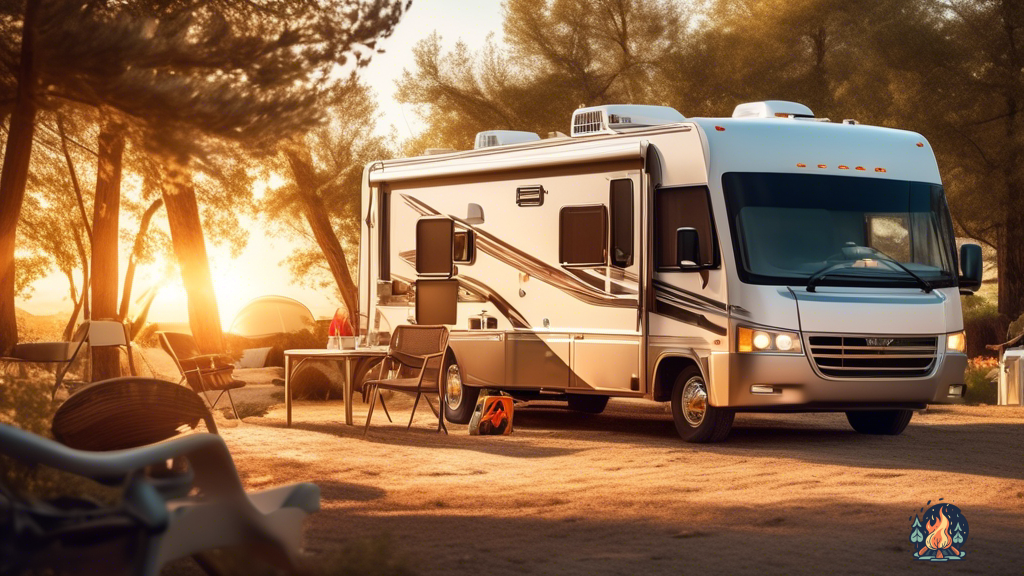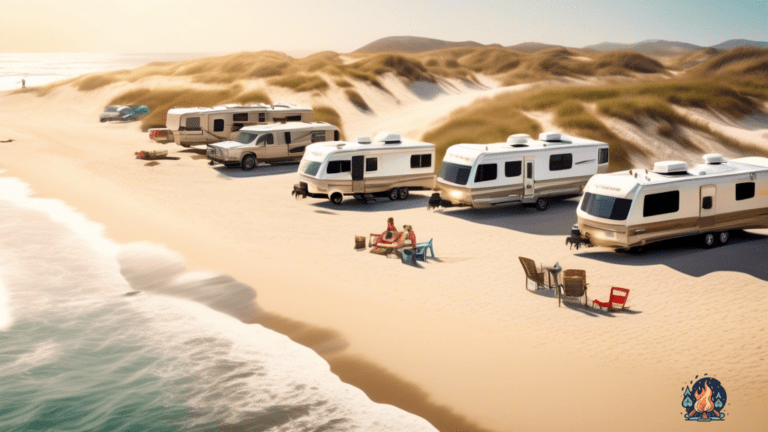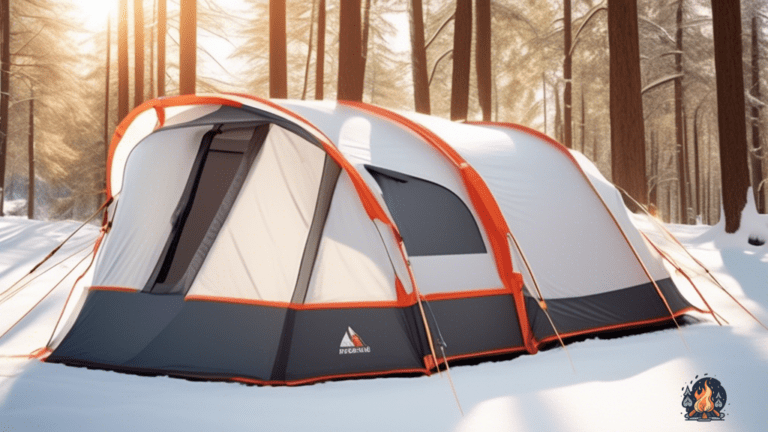Essential Tips For RV Electrical System Maintenance
by Kevin Fairbanks • Updated: January 21, 2024
Keep your RV running smoothly with these essential tips for electrical system maintenance. Click now to unlock the secrets and keep your home on wheels powered up!

Are you ready to hit the road in your trusty RV? Before you embark on your next adventure, it’s important to ensure that your RV’s electrical system is in top-notch condition.
After all, a well-maintained electrical system is the key to a comfortable and stress-free journey. In this article, we will provide you with essential tips for RV electrical system maintenance, so you can keep the lights on, the appliances running, and the good times rolling.
Now, we know what you’re thinking – electrical system maintenance sounds about as exciting as watching paint dry. But fear not! We’ve got you covered with some useful tips that will not only keep your RV’s electrical system in tip-top shape but will also give you a good chuckle along the way.
So, grab your toolbox and let’s dive into the electrifying world of RV electrical system maintenance!
Understanding Your RV’s Electrical System
You might want to take a closer look at your RV’s electrical system if you want to avoid any potential issues down the road. Trust me, you don’t want to be stranded in the middle of nowhere with no power for your microwave popcorn.
So, let’s dive into the wonderful world of RV electrical systems, shall we?
First things first, you need to understand the basics. Your RV’s electrical system is like the circulatory system of your body. It provides power to all the vital organs, or in this case, appliances and devices in your RV. From your refrigerator to your air conditioner, everything relies on electricity to function properly. It’s like the magic potion that keeps everything running smoothly.
Now, I know what you’re thinking – "But how does it all work?" Well, I’m glad you asked! Your RV has a combination of 12-volt DC power and 120-volt AC power. The 12-volt DC power is provided by your RV’s battery, while the 120-volt AC power is supplied by either shore power or a generator. It’s like having the best of both worlds!
So, the next time you’re enjoying a nice cold beverage from your fridge while basking in the cool air from your AC, remember to thank your RV’s electrical system for making it all possible.
Regular Inspection and Cleaning of Electrical Components
Regularly inspecting and cleaning your RV’s electrical components ensures optimal performance and prevents potential issues. You don’t want your RV to suddenly go all "Frankenstein" on you, with wires sparking and bolts flying. That would definitely put a damper on your road trip!
So, take a moment every now and then to give your electrical system a good once-over. Check for any loose connections, frayed wires, or signs of wear and tear. And don’t forget to clean those dusty switches and outlets! You don’t want your RV to turn into a "dust bunny playground" where all the little critters gather to have a party. So, grab a cloth or a small brush and give those electrical components a good cleaning. Your RV will thank you, and so will the dust bunnies who will have to find a new place to party.
In addition to inspecting and cleaning, it’s also important to check for any signs of corrosion. You don’t want your electrical system to turn into a "rusty old shipwreck" that’s just waiting to sink. So, keep an eye out for any green or white residue on the terminals or connectors. If you spot any, it’s time to break out the baking soda and water solution to give them a good scrub.
And remember, prevention is key! So, make sure to keep your RV’s electrical components protected from moisture and extreme temperatures. You don’t want your electrical system to feel like it’s stuck in a sauna or trapped in the freezer. Treat it with care and it will keep your RV running smoothly, like a well-oiled machine.
Proper Battery Maintenance
To keep your RV’s battery in top shape, it’s crucial to give it some TLC and not let it run on fumes. Think of your battery as the caffeine addict of your RV – it needs a regular dose of charging to keep it going.
So, make sure you have a reliable battery charger on hand and use it to give your battery the boost it needs. And don’t forget to check the water levels in your battery regularly. Just like your body needs water to function properly, your battery needs it too. So, grab a glass of water for yourself and while you’re at it, check if your battery needs a refill too.
Now, let’s talk about battery connections. We all know that connections are important in life – whether it’s with people or with batteries. So, take a peek under the hood of your RV and make sure the battery connections are clean and tight. Think of it as giving your battery a little hug – it needs that tight connection to feel loved.
And if you notice any corrosion on the battery terminals, don’t panic. Just grab a can of cola (yes, you read that right – cola!) and pour it over the terminals. The acids in the cola will help dissolve the corrosion and give your battery a refreshing cleanse. Plus, it’s a great excuse to have a cola break while you’re working on your RV.
So, go ahead and give your battery some love – it deserves it!
Managing Power Consumption
One way to effectively manage your power consumption in your RV is by using energy-efficient appliances and devices. Consider investing in appliances that have an Energy Star rating or are specifically designed for low power consumption.
You might think, "But wait, won’t that mean sacrificing the luxury of my beloved 50-inch flat-screen TV?" Fear not, fellow RV enthusiast! There are plenty of energy-efficient options available that will still allow you to catch up on your favorite shows without draining your battery faster than a toddler with a juice box. Plus, you can always rely on the good ol’ power of persuasion to convince your travel companions that a rousing game of charades or a lively storytelling session is just as entertaining as any TV show.
Another handy tip for managing your power consumption is to be mindful of your usage habits. Now, I’m not suggesting you live like a monk and forsake all modern conveniences, but a little conscious effort can go a long way.
Take a moment to think before you plug in that hairdryer or turn on the air conditioning at full blast. Do you really need to blow dry your hair to perfection in the middle of the wilderness? Can you survive without the refreshing coolness of an arctic breeze blowing through your RV? Sometimes, a little sacrifice can lead to big savings in power consumption.
So, next time you’re tempted to crank up the power, just remember that every kilowatt-hour counts, and your battery will thank you for it later.
Troubleshooting Common Electrical Issues
When troubleshooting common electrical issues in your RV, it’s important to identify the source of the problem before attempting any repairs.
Now, I know what you’re thinking, "But how can I do that? I’m not an electrician!" Well, fear not my friend, because I’m here to guide you through this electrifying adventure.
First things first, start by checking the obvious. Is your RV plugged into a power source? I know, it sounds silly, but you would be surprised at how many people forget to do this. It’s like trying to make toast without bread, it just won’t work.
If your RV is plugged in and you’re still experiencing electrical issues, it’s time to put on your detective hat and start investigating.
Next, take a look at your circuit breakers. These little guys are like the superheroes of your electrical system, protecting it from any potential harm. If a circuit breaker is tripped, simply flip it back into place and see if that solves the problem. It’s like giving your electrical system a little pep talk, saying "Come on buddy, you can do it!"
Remember, when troubleshooting electrical issues in your RV, it’s important to approach it with a sense of humor. After all, laughter is the best way to lighten the mood and keep your sanity intact.
So go forth, my fellow RV enthusiasts, and conquer those electrical gremlins with a smile on your face and a spark in your step!
Frequently Asked Questions
How often should I replace the fuses in my RV’s electrical system?
You should replace the fuses in your RV’s electrical system whenever they blow out. It’s important to keep an eye on them and replace them promptly to prevent any electrical mishaps. Safety first, happy camping!
What steps should I take to protect my RV’s electrical system during extreme weather conditions?
To protect your RV’s electrical system in extreme weather, start by disconnecting the power source and securing all external connections. Wrap exposed wires with electrical tape and consider investing in surge protectors. Mother Nature’s got nothing on you!
Can I use solar panels to power my RV’s electrical system?
Yes, you can totally use solar panels to power your RV’s electrical system! In fact, did you know that a single solar panel can generate enough energy to power your RV for an entire day? Now that’s some sunny savings!
How can I prevent electrical surges from damaging my RV’s appliances and electronics?
To prevent electrical surges from frying your precious RV appliances and electronics, invest in a surge protector. Trust me, it’s like giving your RV a superhero shield! Don’t let those sneaky surges ruin your road trip fun.
Are there any specific safety precautions I should follow when working with my RV’s electrical system?
When working with your RV’s electrical system, safety is paramount. Always wear protective gear, such as gloves and goggles, and turn off the power before starting any work. Remember, it’s better to be shocked by a joke than by electricity!

Hi, I’m Kevin, a lifelong camping enthusiast and the voice behind Campfire Discoveries. From tent to RV to cabin camping, I’ve explored it all. Join me as we share stories and tips around the campfire, deepening our connection with the great outdoors.
Keep Reading
-
Beach Adventures: RV Campgrounds With Direct Beach Access
Uncover the perfect beach escape at these RV campgrounds with direct beach access. Immerse yourself in relaxation, sun-soaked days, and endless adventures. Pack your bags and start planning your dream getaway now!
-
4-Season Tent Features: The Ultimate Guide
Get ready for any adventure with our ultimate guide to 4-Season Tent Features. Discover the must-have durability and insulation that will keep you comfortable in any weather. Click here to ensure you’re prepared for your next outdoor escapade!
-
Irresistible Campfire Dessert Recipes For Sweet Tooths
Craving something sweet? Try these irresistible campfire dessert recipes that will satisfy your sweet tooth under the stars. Click here for mouthwatering treats!



